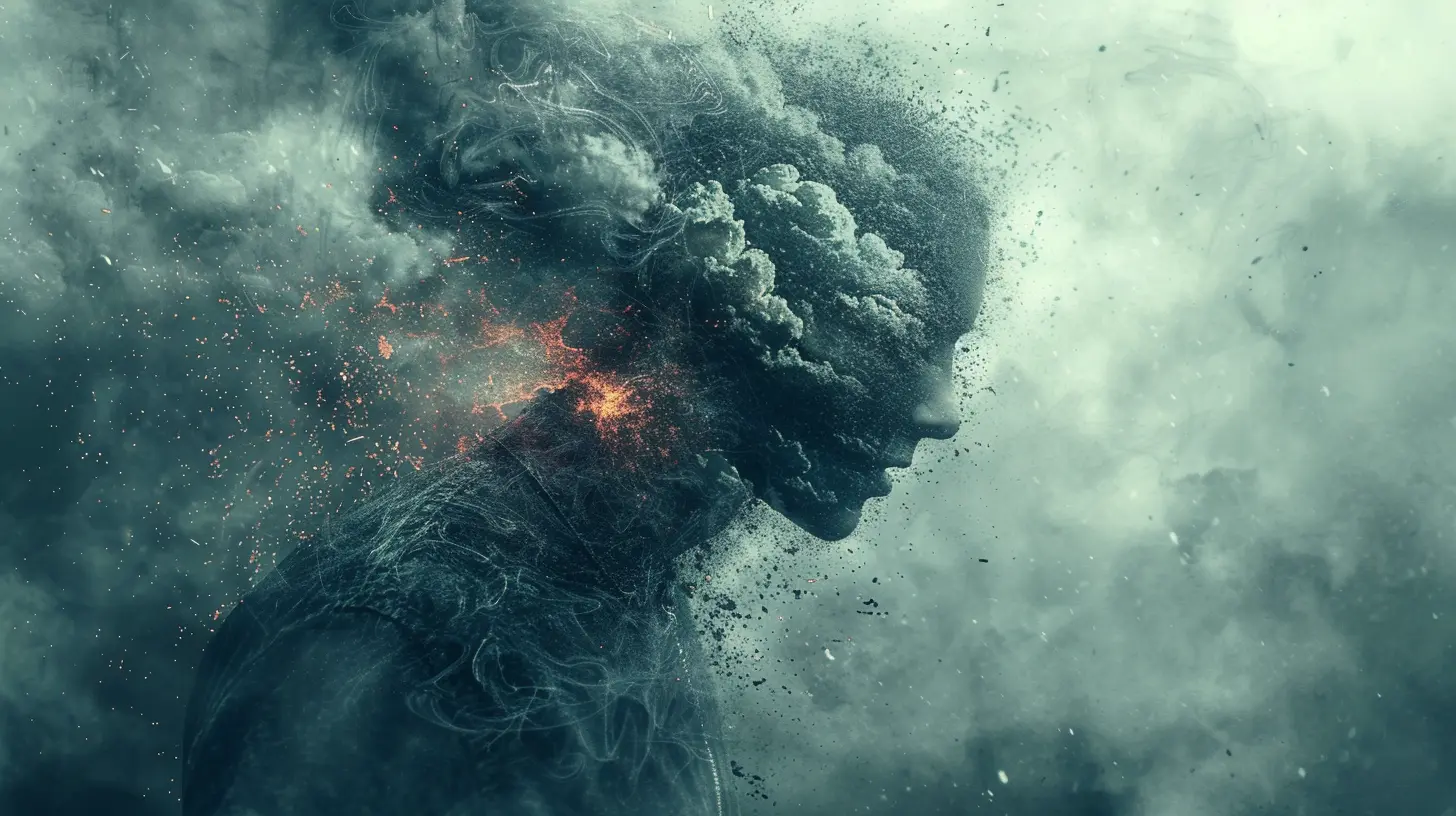How Schizophrenia Affects the Sense of Self
25 May 2025
Schizophrenia is a complex and often misunderstood mental disorder that affects millions of people worldwide. While most discussions focus on the hallucinations, delusions, and cognitive impairments associated with the condition, one of the most profound and unsettling effects of schizophrenia is its impact on the sense of self.
Imagine waking up one day and feeling like you're losing touch with who you are—your thoughts don't seem like your own, your emotions feel foreign, and even your body feels unfamiliar. This is the reality for many individuals living with schizophrenia. But what exactly is happening inside the mind that causes this fragmentation of self? Let's dive deeper into how schizophrenia disrupts identity and self-perception.

Understanding the "Sense of Self"
Before we explore how schizophrenia affects self-identity, let’s first define what the "sense of self" actually means.Your sense of self is your internal experience of being "you." It includes your thoughts, memories, emotions, beliefs, and perceptions—everything that makes you feel like a coherent, singular person. This sense helps you navigate the world, understand your experiences, and relate to others.
For most people, this sense of self remains stable throughout life. However, for someone with schizophrenia, this stability is often shattered, leading to a fragmented or distorted perception of who they are.

How Schizophrenia Disrupts the Sense of Self
Schizophrenia alters various aspects of cognition and perception, making it difficult for individuals to maintain a clear and consistent sense of identity. Here’s how:1. Dissociation from Thoughts and Actions
One of the hallmark symptoms of schizophrenia is the experience of intrusive or uncontrolled thoughts. Many individuals report feeling as though their thoughts are being inserted into their minds by an external force or that someone else is controlling their actions.This phenomenon, known as thought insertion, makes it difficult for a person to trust their own mind. Imagine feeling like your own thoughts don’t belong to you – it would be terrifying, right? This struggle to distinguish between self-generated thoughts and external influences erodes the individual’s sense of self.
2. Hallucinations and Their Impact on Reality Perception
Schizophrenia often causes auditory hallucinations—voices that seem to come from outside the person's head. These voices may comment on their actions, criticize them, or even command them to do things.Over time, hearing intrusive voices can make someone question which thoughts and beliefs are truly their own. If an internal voice repeatedly criticizes or devalues a person, they may begin to integrate these external messages into their identity, leading to a distorted or fragmented sense of self.
3. Delusions That Alter Self-Identity
Delusions—fixed false beliefs—are another way schizophrenia distorts self-perception. Some individuals develop delusions of grandeur, believing they have special powers or a unique destiny. Others experience paranoid delusions, feeling they are being watched or persecuted.These delusions can shape a person's identity in extreme ways. If someone firmly believes they are a prophet, an alien, or being controlled by a secret organization, their entire understanding of themselves and their place in the world changes.
4. Emotional Blunting and the Loss of Self-Connection
Many people with schizophrenia experience emotional blunting, where emotions feel muted or completely absent. This detachment from one's own feelings makes it difficult to connect with personal experiences, which can weaken the sense of self.If you can't feel excitement, sadness, or love the way you used to, it can lead to a sense of emotional numbness. Over time, this emotional disconnection can make a person feel like a hollow version of themselves, unsure of who they truly are.
5. Disorganized Thinking and Self-Narrative Breakdown
A core symptom of schizophrenia is disorganized thinking, where thoughts become jumbled, fragmented, or nonsensical. This makes it difficult for individuals to maintain a clear and continuous internal narrative.Think about how your memories and experiences shape your identity. If your thoughts constantly feel scattered or disconnected, telling a cohesive life story becomes almost impossible. Without this internal narrative, the sense of self can start to crumble.

The Struggle to Maintain a Coherent Identity
For many people with schizophrenia, the constant distortions in thought, perception, and emotion make it incredibly difficult to maintain a stable self-identity. They may feel like a stranger to themselves, uncertain of their own thoughts, feelings, and even physical presence.In severe cases, some individuals experience depersonalization, where they feel detached from their own body or existence. They might look in the mirror and not recognize themselves, or they may feel as though they're watching their life from the outside.
If you've ever had a dream where you felt like a different person, you might get a small glimpse of what this feels like. But imagine living with that unsettling disconnection every single day.

How Schizophrenia Affects Personal Relationships
Because schizophrenia disrupts self-identity, it also has a profound impact on relationships. If someone struggles to understand their own thoughts and feelings, it becomes challenging to connect with others authentically.Many individuals with schizophrenia withdraw from social interactions, feeling misunderstood, mistrustful, or simply too overwhelmed to engage. Others may behave erratically due to delusions or hallucinations, creating strain in relationships.
This isolation only deepens the crisis of self-identity. Human connections play a crucial role in shaping who we are, and when those connections break down, it can lead to further disintegration of self.
Can a Strong Sense of Self Be Rebuilt?
While schizophrenia presents significant challenges in maintaining self-identity, recovery is possible. Here are some ways individuals can work toward reclaiming a sense of self:1. Professional Treatment & Therapy
Medications like antipsychotics can reduce the intensity of symptoms, helping individuals regain clarity in their thoughts and perceptions. Therapy, particularly cognitive-behavioral therapy (CBT) and mindfulness-based approaches, can help individuals rebuild a sense of identity by challenging distorted thoughts and reconnecting with their emotions.2. Journaling & Self-Reflection
Writing down thoughts, emotions, and experiences can help individuals track changes in their perceptions and uncover patterns in their self-identity. It’s like piecing together a puzzle—one entry at a time.3. Engaging in Creative Expression
Art, music, poetry—creative outlets provide an avenue for self-expression that doesn't rely solely on words. Many individuals with schizophrenia find that creative pursuits help them reconnect with lost parts of themselves.4. Building Meaningful Relationships
Even though schizophrenia can make socializing difficult, having a strong support system is invaluable. Building safe and supportive relationships can provide external reinforcement of self-identity.
Final Thoughts
Schizophrenia profoundly affects an individual’s sense of self, making it difficult to maintain a coherent identity. From intrusive thoughts and hallucinations to emotional disconnection and identity confusion, the disruptions are immense.However, with the right support, treatment, and self-exploration, individuals with schizophrenia can work toward reclaiming their sense of self. While the journey may be challenging, identity is not entirely lost—it can be reshaped, redefined, and rediscovered.
all images in this post were generated using AI tools
Category:
SchizophreniaAuthor:

Alexandra Butler
Discussion
rate this article
3 comments
Bria McGonagle
Schizophrenia profoundly disrupts the sense of self, blurring identity and reality, which can lead to profound emotional distress and challenges in interpersonal relationships.
June 17, 2025 at 4:22 AM

Alexandra Butler
Thank you for highlighting the deep impact schizophrenia has on identity and emotional well-being. It's crucial to understand these challenges to foster empathy and better support for those affected.
Zinna Barnes
Schizophrenia challenges the sense of self, often blurring identity and reality. Understanding this struggle fosters compassion and emphasizes the importance of empathy in mental health support.
May 31, 2025 at 3:12 PM

Alexandra Butler
Thank you for your insightful comment! Compassion and empathy are indeed crucial in supporting those affected by schizophrenia and enhancing our understanding of their experiences.
Zevan Anderson
Ah, the elusive sense of self! Schizophrenia might throw a curveball, but let's not forget: our identities are more than just brain chemistry. Embrace the chaos—sometimes, finding yourself means losing the script. Mental health isn't a straight line; it's a wild, glorious ride!
May 25, 2025 at 2:25 AM

Alexandra Butler
Absolutely! Embracing the complexity of identity in the context of schizophrenia highlights the rich, multifaceted nature of self-discovery. It's a journey of navigating both chaos and clarity.



